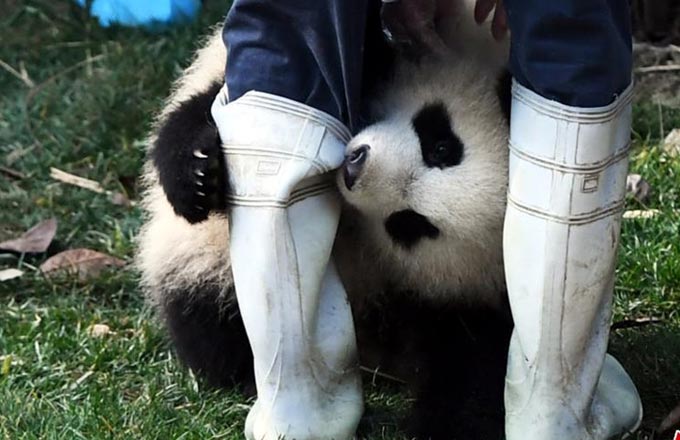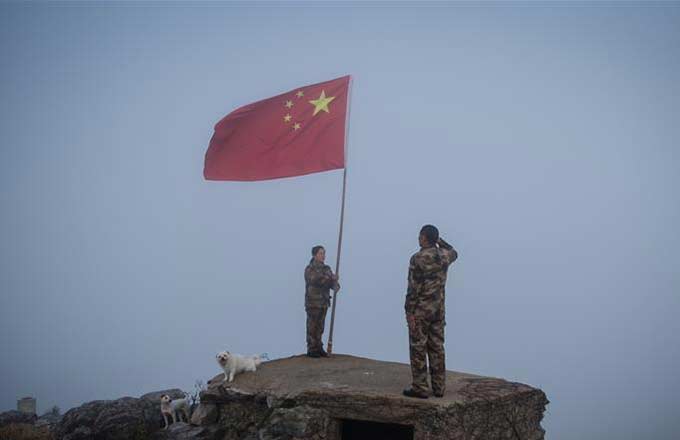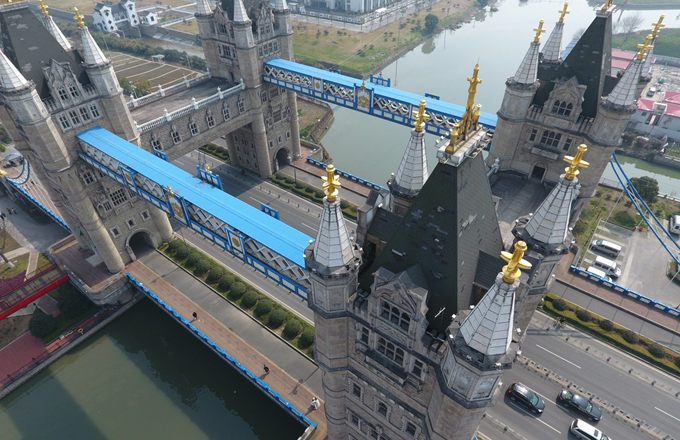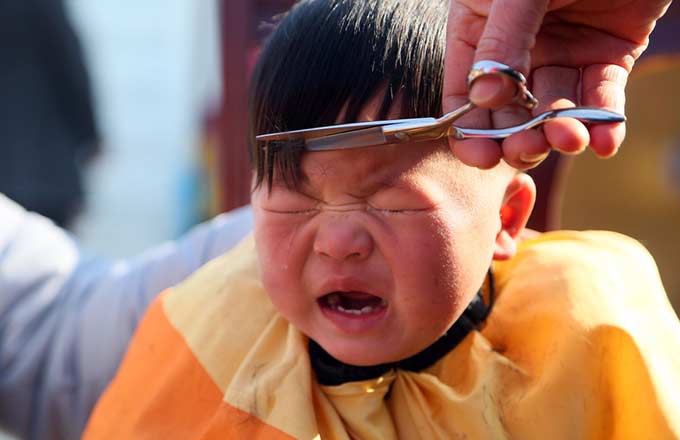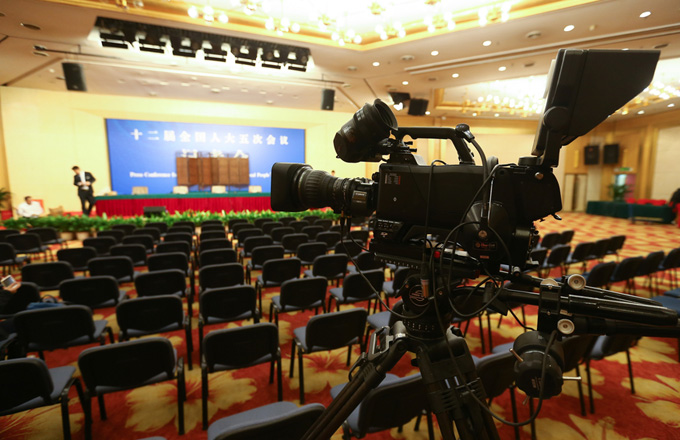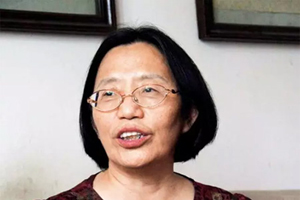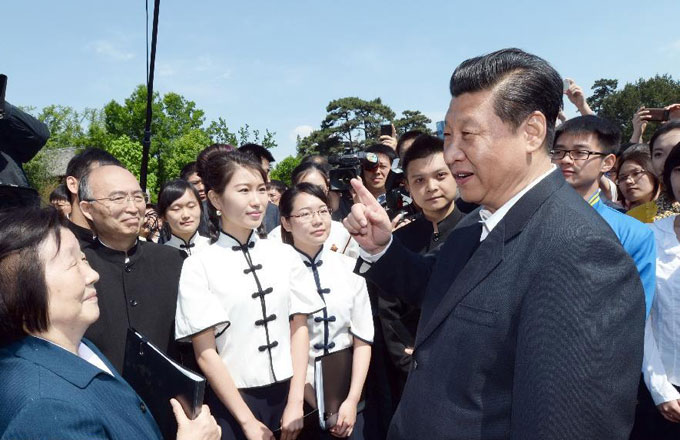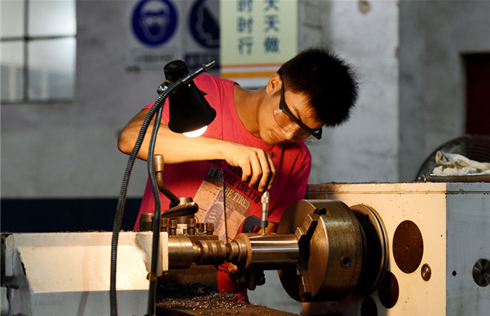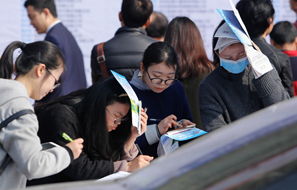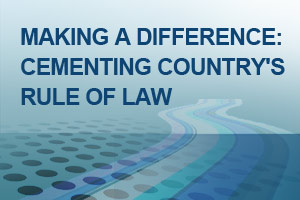Xi's political economy renews modernization drive
President wins nation over with his confident demeanor, Xinhua reports.
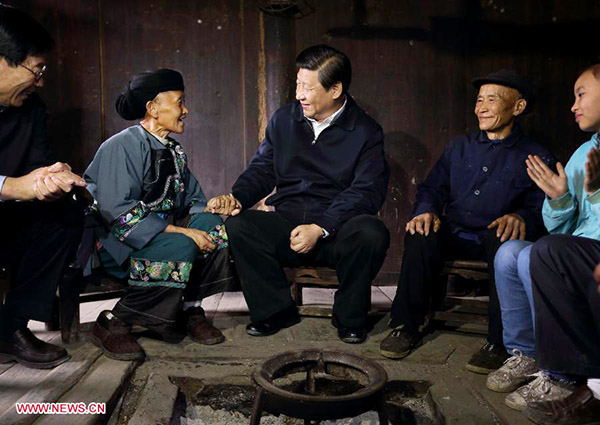 |
|
Chinese President Xi Jinping talks with family members of Shi Qiwen, a villager at Shibadong village in Paibi township of Huayuan county in the Tujia-Miao autonomous prefecture of Xiangxi, central China's Hunan province, Nov 3, 2013. [Photo/Xinhua] |
More than four years after he promised a great renewal of the Chinese nation — while ensuring that the country stands tall in the world and the Communist Party of China conducts its affairs with strict discipline — President Xi Jinping's insights into the country's political and economic development are revitalizing the national modernization drive.
When Xi appeared in front of the media at the Great Hall of the People in Beijing on Nov 15, 2012, following his election as the Party's top leader, his confident demeanor and admission of challenges, such as corruption within the Party, pointed to changes ahead.
"We are not complacent, and we will never rest on our laurels," he told the nation in a televised address, after praising past achievements.
More than 1,500 days into his leadership, Xi has successfully imbued the country's political and economic governance with his own thinking.
Xi, general secretary of the CPC Central Committee and chairman of the Central Military Commission, spearheaded a popular anti-corruption drive that has exposed a long list of fraudulent officials, from low-ranking "flies" to high-ranking "tigers".
Last year, a report in The Wall Street Journal said that during the campaign, which has netted more than 1 million officials since late 2012, Xi has called for greater checks on political power, creating a "cage of regulations" that ensures cadres "dare not, cannot and do not want to" be corrupt.
He has also publicly defended free trade against a backdrop of weak growth momentum in major economies and rising trade protectionism, and managed to sustain the world's second-largest economy on the track of fast growth.
Last year, China's GDP grew by 6.7 percent to 74.4 trillion yuan ($10.8 trillion), making the country the fastest-growing major economy in the world.
Xi has also taken a quantum leap in leading China's participation in global governance, guiding the ancient civilization back to the center of the world stage.
"By 2016, a broad swath of Americans had begun to feel the effects of China's development in their everyday lives — in shopping malls, at the multiplex, in paychecks — and to sense that the center of global power might be shifting from the United States toward China," Robert Daly, director of the Kissinger Institute on China and the United States, wrote earlier this year.
Later, in the magazine Foreign Policy, he wrote: "In 2016, China's big plans may have begun to tilt the balance."
Hu Angang, director of the center for China studies at Tsinghua University in Beijing, attributed the country's political and economic achievements to new governance insights provided by the latest generation of leaders.
"China's most important accomplishment since the 18th CPC National Congress rests on the success in strategic policymaking, which constitutes the essential reason for China's achievements," Hu said.




